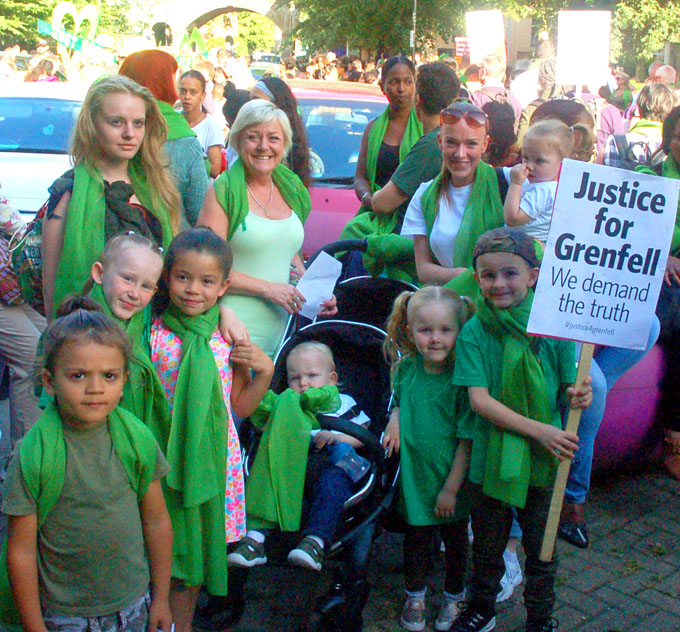THE HIGH Court has ruled that the 1,000 claims against The Royal Borough of Kensington and Chelsea (RBKC) and its tenant management organisation (TMO) over the Grenfell Tower fire should be put on hold for nine months while out of court settlements are ‘explored’.
However, lawyers for the survivors said they would not engage with RBKC unless it admits liability.
RBKC and its TMO face nearly 1,000 High Court claims brought on behalf of the bereaved and survivors of the fire or their relatives over the deaths of 72 men, women and children on that horrific night.
Some 140 firefighters and police officers are also taking legal action against the borough, the TMO, London Fire Brigade, the Met Police and eight companies involved with the tower’s refurbishment.
The bereaved and survivors allege 23 defendants ‘separately and cumulatively led to or contributed to the disaster’ that killed 72 people and left hundreds homeless. The firefighters, some of whom claim they cannot work again as a result of the trauma, are seeking ‘damages for personal injury and loss … caused by the negligence and/or breach of statutory duty of the defendants’.
At a High Court hearing to manage the total of about 1,130 claims, the judge was asked to put a hold (a ‘stay’) on the civil claims progressing through the courts ‘to allow us to continue to explore Alternative Dispute Resolution (ADR) with the Defendants’.
Leigh-Ann Mulcahy QC, representing RBKC and the TMO, said the delay would mean they could try to ‘pursue alternative forms of dispute resolution’ in order to ‘avoid the additional trauma, delay and cost that will be inherent’ in pursuing the litigation.
However, 88 of the claimants, who are all survivors of relatives of those killed, have said they will not take part in talks with the council until it admits liability.
Speaking on their behalf, Susan Rodway QC accused RBKC and the TMO of ‘seeking to avoid justice’ and trying to prolong the proceedings despite ‘overwhelming evidence that condemns those landlords’ having come out in the public inquiry into the fatal fire.
She added that the claimants had ‘already waited four years’ and their suffering had been ‘aggravated and exacerbated by … the failure of their landlords simply to say sorry and it’s our fault’.
However, Judge Barbara Fontaine ruled that the claims should be put on hold for nine months and said she would give the reasons for her decision at a later date.
In letter sent to the Grenfell survivors and bereaved families Bhatt Murphy Solicitors said: ‘At the hearing RBKC & the TMO were pressed to admit liability by both some Bereaved Survivors Residents (BSRs) and the London Fire Commissioner.
‘There is currently no admission of liability by RBKC, the TMO – or any other defendant.
‘However, in response to submissions and to comments made by Senior Master Fontaine, RBKC & the TMO said in clear terms that they are “absolutely committed to early resolution of claims” and will fully engage in that process.
‘As part of the Alternative Dispute Resolution (ADR) process we will be placing pressure on all of the appropriate defendants, in addition to RBKC & the TMO, to give effect to this commitment and also, importantly, to acknowledge their responsibility for the disaster through an admission of liability, damages and restorative justice.
‘In our view, the evidence we have seen in the Inquiry indicates liability on the part of corporate and central government defendants as well as RBKC & the TMO and this is why we have also issued proceedings against them.’
The Grenfell Inquiry has already heard that senior Arconic staff warned internally that the polyethylene core cladding it was selling was ‘dangerous’ two years before the fire. In 2007. an Arconic executive attended a seminar where a cladding expert raised the question of a manufacturer’s responsibility if a ‘building made out of polyethylene core’ cladding were to catch fire, killing ‘60 to 70 persons’.
Celotex, which made most of the combustible foam insulation rigged a safety test with fire-retardant panels to boost the insulation’s fire performance, but the modifications were left out of marketing literature, the inquiry also heard. A former executive described it as ‘a fraud on the market’.
